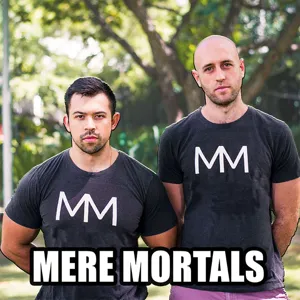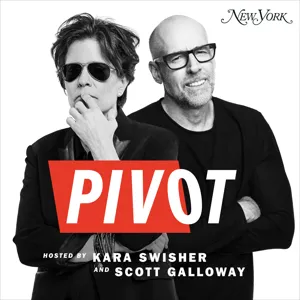Podcast Summary
Cheating leads to negative consequences: Cheating provides instant gratification but harms individuals and others in the long run, and using technology to cheat raises ethical concerns
Cheating, while providing an immediate reward, ultimately leads to a self-control dilemma and negative consequences for both the individual and those around them. Aiden's motivation to cheat stems from the desire for instant gratification, but in the long run, he and others are worse off. The use of technology to cheat, such as AI-written essays, only adds to the issue and raises concerns for educators and parents. While it's understandable that some may view cheating as a sign of intelligence or resourcefulness, it's important to remember the ethical implications and the impact on the educational experience for all involved.
Cost-benefit analysis of cheating: Cheating may provide immediate benefits but can lead to long-term shame, guilt, and harm to others. Consider motivations and consequences before engaging.
Human beings make cost-benefit calculations when deciding whether to engage in behaviors like cheating. While some may believe only economists think in terms of costs and benefits, psychologists also recognize this concept. Cheating can be seen as an impulsive act with immediate benefits, but it often comes with hidden costs such as shame, guilt, and harm to others. Some forms of cheating may not seem to harm anyone directly, but they can still have negative consequences, such as damaging the integrity of a system or causing frustration and anger in others. The problem with cheating is that it can lead to a slippery slope of poor self-control, making it more likely for individuals to repeat the behavior and turn it into a habit. Ultimately, it's essential to consider the motivations behind cheating and the potential long-term consequences before engaging in such actions.
Goals and Institutions Influence Cheating: Desire to succeed and be part of prestigious institutions can lead individuals to cheat, justifying their actions and potentially escalating into a habit, impacting society as a whole.
Our goals and the institutions we strive to be a part of can influence our willingness to cheat. This is because the desire to succeed and harness the benefits of these institutions can lead individuals to bend rules or even cheat, especially if they believe they are not harming anyone directly. This slippery slope can be hard to stop once started, and the concept of cheating becomes more complex when considering the fairness or unfairness of the system itself. Additionally, cheating can become a habit that escalates quickly, as individuals may justify their actions by minimizing the impact on others or believing they are the only ones doing it. Ultimately, it's essential to recognize the potential consequences of our actions and consider the broader impact on society as a whole.
Who Bears Responsibility for Dishonesty in Research?: Co-authors share accountability for research integrity despite not always being directly involved in data manipulation. Dishonesty erodes trust and has serious consequences.
The responsibility of dishonesty in research, even for co-authors, is a complex issue. Dan Ariely, a psychologist who has studied honesty extensively but has been involved in a retracted paper due to data manipulation, raises the question of who bears responsibility when research findings turn out to be dishonest. While co-authors may not be directly responsible for the manipulation, they still share accountability for the integrity of the research. However, it's not always feasible for co-authors to thoroughly check every data file for potential manipulation. Instances of dishonesty in research erode trust within the scientific community and can have serious consequences. Additionally, the discussion touched upon an online trend that trivializes immoral behavior, which further emphasizes the importance of upholding ethical standards.
Cheating: A Slice of the Complexity of Dishonesty: Cheating can lead to a slippery slope of dishonesty, but the complexity of dishonesty includes its various forms and how generosity and honesty don't always align, as seen in Dan Ariely's case. Transparency after a scandal raises questions about motivations.
Cheating, whether it starts in academia or extends to larger societal issues like tax evasion and insurance fraud, has serious consequences for individuals and society as a whole. It can create a slippery slope leading to more significant dishonesties. However, the discussion also touched upon the complexity of dishonesty and its various forms. Dan Ariely's case, despite allegations of academic dishonesty, is an example of how generosity and honesty may not always align. Meanwhile, the Sam Bankman Fried situation highlights the contrast between public statements and private actions, and how even after a significant scandal, some individuals choose to be transparent, raising questions about the motivations behind their actions.
The complexities of ethical decision-making in charity: Effective altruism encourages ethical use of resources, but justifying cheating for charity can lead to negative consequences, questioning the education system's focus on grades and the importance of long-term ethical considerations.
The effective altruism movement encourages individuals with significant means to use their resources effectively for charitable causes, but the moral justification for cheating or dishonest actions in the name of charity can lead to increased cheating behavior and a decreased physiological response, as shown in a recent study. This raises questions about the education system and its emphasis on grades over learning, potentially contributing to the normalization of dishonest behavior. Sam Bankman-Fried's honest admission of justifying cheating in a corrupt system highlights the complexities of ethical decision-making and the importance of considering the long-term consequences of our actions.
Understanding the Complexity of Cheating: Exploring the root causes of cheating and promoting honesty and integrity in education and beyond is essential.
The issue of cheating in education is complex and not solely the fault of high-stakes assessments. While these assessments may create more opportunities for cheating, there are numerous instances in life where dishonesty can occur. Therefore, eliminating quizzes, tests, and exams from formal education may not be the solution. Instead, it's essential to consider the root causes of cheating and explore ways to promote honesty and integrity in education and beyond. As the speaker mentioned, there are various forms of dishonesty, such as cheating, lying, or stealing, and understanding the consequences of these actions can help us grow and learn from our experiences. So, consider recording a voice memo about a time when you or someone you know engaged in dishonest behavior and reflect on the outcome and self-awareness gained from the experience. Send your recordings to nsq@freakonomics.com.
Considering the long-term implications of choices can lead to better decisions: Framing decisions as part of a pattern or series can help individuals resist temptations and make more ethical choices, leading to long-term benefits and alignment with values
Framing decisions in a broader context can help individuals make better choices, according to the discussion. Behavioral scientist Howard Racklin introduced the concept of self-control dilemmas and suggested that people should consider the long-term implications of their actions, rather than just focusing on the immediate situation. This technique, called patterning or choice bundling, can help individuals resist temptations and make more ethical decisions. For instance, instead of asking oneself if they should cheat on a test just this once, one could consider if they want to cheat every time they face a similar situation. Similarly, when presented with the choice between a healthy and an unhealthy snack, people are more likely to choose the healthy option when they frame it as a decision they will have to make repeatedly. By considering the long-term consequences of their choices, individuals can make decisions that align with their values and promote honesty and integrity.
Our choices have long-term consequences: Considering the pattern of behavior we want to establish and the potential victims, can encourage honesty and accountability.
The choices we make, especially when it comes to ethics and honesty, have long-term consequences. It's easy to justify a "one-time" transgression, but considering the pattern of behavior we want to establish for ourselves is crucial. Angela, in the podcast, used the example of Aidan's potential decision to cheat or lie, emphasizing that this choice reflects not just the present moment but also the person we want to be in the future. The consequences of our actions can ripple out, affecting not only ourselves but also those around us. Additionally, expanding the frame of reference to consider the potential victims and the slippery slope of repeated deceit can further encourage honesty. The podcast also touched on real-life examples of individuals who faced consequences for their dishonest actions, highlighting the importance of accountability. Ultimately, the choices we make, big or small, shape our character and the impact we have on the world around us.
The Importance of Finding the Right Environment for Focus and Productivity: Being aware of our surroundings and finding the right environment can significantly improve our focus and productivity. Individual needs vary, so it's essential to experiment and adapt to what works best for us.
Our surroundings can significantly impact our ability to focus and concentrate. Some people, like Tina Gaither, can study or work effectively with distractions, while others, like Kelly Daniels, find it difficult to focus in pleasant environments due to the temptation to be distracted. The anecdotes shared in the discussion highlight the importance of finding an environment that suits our individual needs to maximize productivity and focus. The rest of the group in the meeting learned this the hard way when they tried to get a man's attention about his chirping smoke detector, which he was oblivious to. The episode also hinted at the concept of self-discipline versus self-control, which will be explored further in the next episode of No Stupid Questions. Overall, the discussion emphasizes the importance of being aware of our surroundings and finding the right environment to optimize our focus and productivity.






